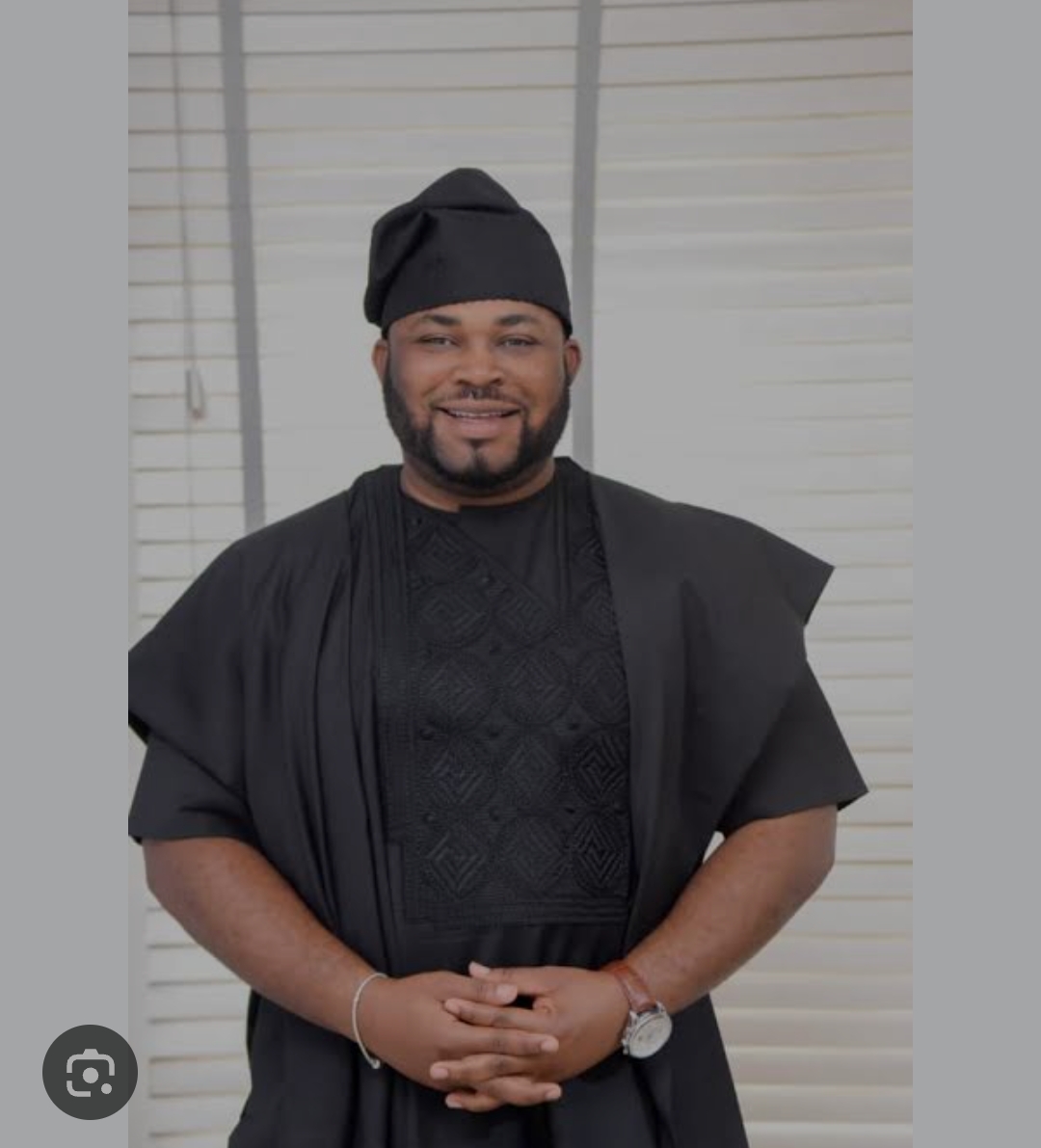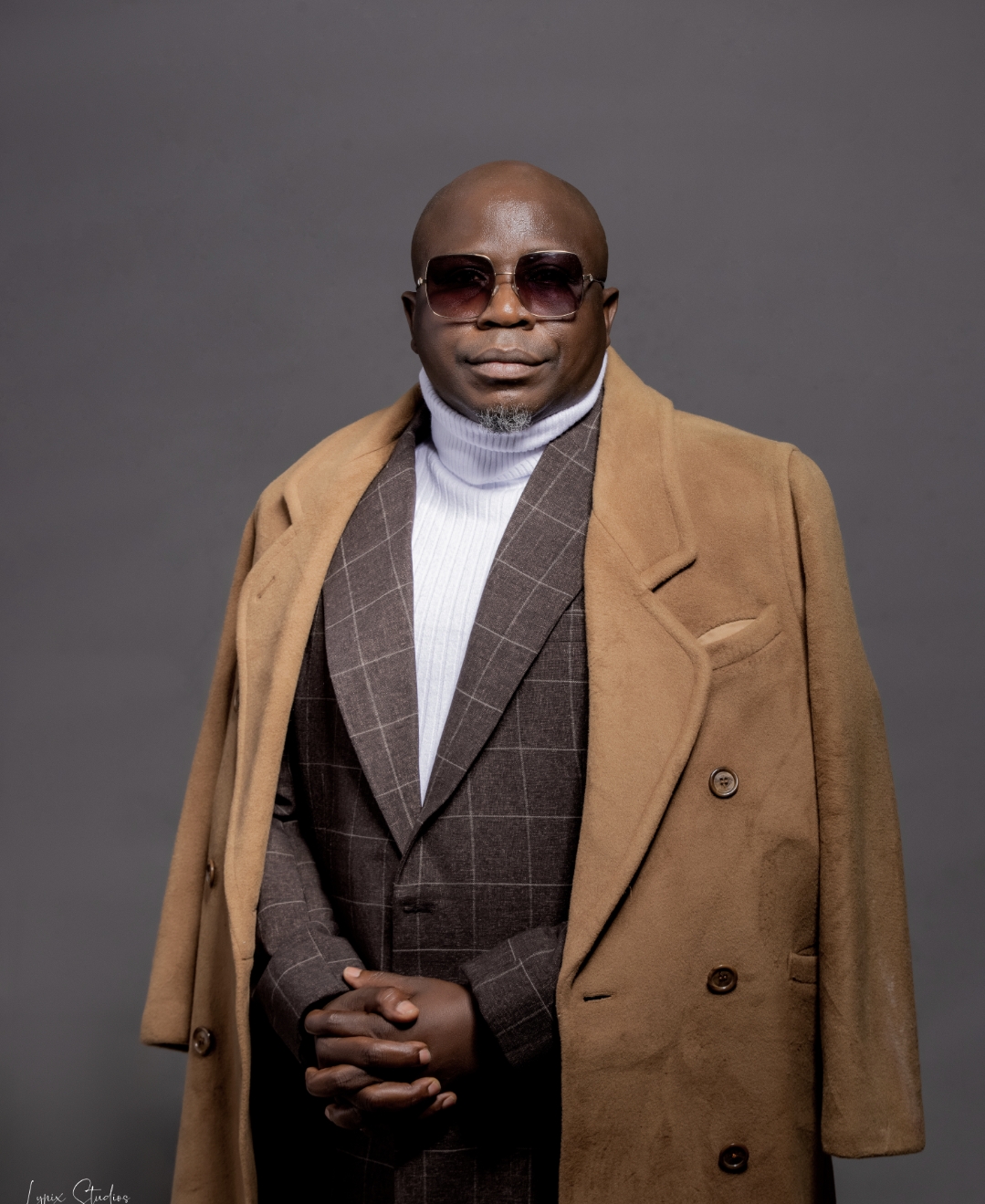celebrity radar - gossips
Experience in stage crucial before film adventure – Ufuoma McDermott

Undoubtedly one of Nollywood’s most admired household name, Ufuoma McDermott’s journey into Nollywood began when she held movie buffs spellbound with her delivery in Zeb Ejiro’s 2004 movie, ‘The President Must Not Die’. Today, she is an A-List Nollywood actress. The former beauty queen is returning to the cinema this September with a new comedy flick, titled ‘What Just Happened’. She throws more light on the project and her career in this interview.
Excerpt:
You hinted earlier that it took you three years to shoot your new movie. Why did it take that long?
Ufuoma: The idea of perfection in this movie was my husband’s. We had spent so much money shooting the movie and when it was ready it wasn’t what we wanted. I wanted to release it but my husband wasn’t in support. I said okay let’s just throw it online and make it into DVD.
He said “unless you want to keep it under your bed. This film is not leaving this house”. To be honest with you it took a toll on me. I was heavily pregnant when we started shooting in 2015. We shot in and out of Los Angeles.
What’s the plot of the movie?
Ufuoma: The story is about a disgruntled professor who goes in search of a man. She takes up her brother’s offer for the position of a visiting lecturer at the University of Ibadan. So, what should have been a one-hour journey from Lagos to Ibadan ends up being a disaster.
Partly, (this was) as a result of her high-handedness and selfishness. The entire movie is a testimony, which is being recounted in church.
Is this your first shot at comedy?
Ufuoma: Well ‘Christmas is coming’ is a comedy but it was a romantic comedy. It wasn’t an entire comedy film as this. So probably yes, this is my first.
Did you write the screenplay?
Ufuoma: I will have to thank Bovi for his contributions especially for all the humour and comedy he injected into the script. Then I did the final rewrite of the script alongside another writer called Victor. I guess we have a great fantastic script. Bovi didn’t feature in the movie but he did a lot of ‘treatments’ for the story.
Can you give a rundown of the cast?
Ufuoma: I played the lead, Professor Ogborgbor, alongside Afeez Oyetoro who everyone knows as Saka. Jude Orhora played Leke; Segun Arinze played Efe the brother to the professor; Toyin Aihmaku played the Usher; MC Abbey played the pastor; Funnybone played the choirmaster. That’s already like a recipe for disaster.
You have a pretty interesting cast…
Ufuoma: I intentionally assembled an unusual cast; you don’t get to see the kind of cast in typical Nollywood films. For instance, nobody can dispute the fact that Segun Arinze is a damn good actor. I say to people that as much as I want people to laugh, I want people to leave the cinema after seeing my film, feeling satisfied. It’s not enough for you to just laugh. I want to be taken for a serious filmmaker. I want to be able to refer to my films many years from now with no regrets whatsoever.
What was it like shooting a comedy?
Ufuoma: I tend to respect a lot of comedy actors so much because it’s so difficult to make people laugh. It’s difficult to make light of your life.
Everything about us is serious now. I have never really played a comedic character. So yes it was a new challenge for my co-actors and I on set. They were so hilarious that it was difficult keeping a straight face on set.
When we were shooting the church scenes, my goodness, we laughed so hard in fact at a point even MC Abbey asked us to regroup and shoot another day.
How will you assess your growth as an actor?
Ufuoma: Before all an actor was only required to come on set with his or her skill set. Right now, it is a little different and I think maybe social media is to blame because right now people don’t just want to see you as an actor, they also want a peep into your life.
They want to see you beyond the character you play but that’s not going to be entirely possible because I am married to a very private man. I think, for now, my experience, as an actor is my ability to balance my private life and my career whether as an actor, director or scriptwriter.
That includes the ability to strike a balance without going against your own principles and not losing focus of what you want from your life or your career.
Today there is this segregation of who is the cinema actor, who is the DVD actor, who is the television actor, really I just want to be an actor alone. You’ve got to learn how to balance all of that. It’s very difficult but you just have to do this.
Do you have a favourite actor/actress?
Ufuoma: I can arguably say Bimbo Akintola is the greatest actress this country has ever produced.
How important is it for an actor to have a background on stage before shooting a feature film?
Ufuoma: I will be honest with you, mine was the reverse. I did film first before I went to stage and I have Bimbo Akintola to thank for that. The stage is a lot of work. It’s not a flash in the pan.
Unlike film, the stage is not ‘Take 1, 2 and Take 7’. The stage is Take 1 and 1 alone. With stage, you have a lot of rehearsals as to when you are shooting a movie.
With stage, you also need to get the whole script into your head and you also need to know your line fast. You also need to know when to improvise because if your co-actor loses his or her own line, your improvisation skills will come in handy.
You also need to know how to inculcate his or her own lines into yours so that he or she can recollect. It is a lot of work; I will be honest with you. With stage, you have contributions to make and if you feel there is something that will make a film better then you should be able to contribute.
When you have a background on the stage, it keeps you very sharp and alert as an actor. Getting my lines into my head is no longer a challenge as I am one of those actors that will give you your lines in your scripts word for word.
This has nothing to do with the fact that I can’t improvise but because acting on stage has made me realise that when a writer writes in a certain way, it is because they are trying to play on words.
celebrity radar - gossips
DSS Invites Ogun LG Chairman, Alebiosu and others Over Attack At APC Stakeholders Meeting

*DSS Invites Ogun LG Chairman, Alebiosu and others Over Attack At APC Stakeholders Meeting*
The Department of State Services (DSS) Abeokuta on Monday invited Ijebu Ode local government Chairman, Hon Dare Alebiosu, and some political thugs alleged to have caused disturbance, incitement and physical attack during an APC stakeholders meeting few days to Ward Congress in the area.
A reliable security source disclosed that an aide of the Governor who was reportedly attacked during the stakeholders meeting was said to have petitioned the DSS.
According to the source, there have been growing concerns over the activities of the LG Chairman, who was alleged to be backing cultists and using them as a tool for harassment and intimidation in the community.
As it was reported, the LG boss was accused to have openly confronted and accused the Governor’s aide for identifying some of the cultists to DSS officials, while one of the cultist was said to have hit their target in the face and removing his medicated glasses. The swift and professional intervention of the Men of DSS quickly deescalated the matter and the meeting went on to a conclusive end.
The meeting which held at the residence of Chief Okuboyejo, the Governor’s Advisory Council Chairman at GRA Ijebu ode became tensed, after the LG chairman invaded the private premises of the old man with a large number of cultists which some of them were allegedly believed to be armed.
The source added that the case is presently with the DSS, while the petitioner has also submitted various evidence against the LG Chairman.
In another turn of event, Commisoner for Urban and regional planning was harassed and robbed, so also the former SLG to the Local govt also almost lost his life as he was attacked with cutlass by thugs who were allegedly said to be led by Dapo Adebajo, he was hospitalized. The case has also been reported to the DSS and Police as at the time of filling this report.
celebrity radar - gossips
Laffmattazz with Gbenga Adeyinka & Friends Returns In 2026, As Canada Joins Tour

Laffmattazz with Gbenga Adeyinka & Friends Returns In 2026, As Canada Joins Tour
Nigeria’s longest-running and most consistent comedy tour, LaffMattazz with Gbenga Adeyinka & Friends, has officially announced its 2026 tour themed “Next Chapter.” The upcoming edition marks a major milestone as the brand celebrates its 15th edition with a bold expansion that includes Canada for the first time.
The Next Chapter edition represents a clear evolution from previous years — signaling growth, global reach, and a renewed creative vision. While past editions focused on taking premium comedy experiences across Nigerian cities, the 2026 tour elevates the brand with international exposure, upgraded production, and stronger engagement with audiences at home and in the diaspora.
Speaking on the significance of the new theme, organizers describe the 15th edition as more than a celebration of longevity, but a statement of intent — positioning LaffMattazz as a global Nigerian entertainment export.
CONFIRMED TOUR CITIES & VENUES
•Ibadan – Jogor Center (Easter Sunday, April 5th, 2026)
•Akure – The Dome International Culture & Event Center
•Abeokuta – OOPL Marquee
•Lagos – Balmoral Convention Center
•Canada – Multi-city tour (dates to be announced)
Audiences can expect a rich blend of comedy, music, and surprise guest appearances — delivered with the signature “& Friends” experience that has defined the tour for over a decade.
With the Next Chapter, LaffMattazz reinforces its legacy while opening new doors for African comedy on the global stage.
celebrity radar - gossips
Kevin David Kaydee Releases Inspiring Single “Oluwa Settle Me”

Kevin David Kaydee Releases Inspiring Single “Oluwa Settle Me”
Rising music artist Kevin David Kaydee has released a powerful new single titled Oluwa Settle Me, a soulful Afro-inspired anthem that blends heartfelt prayer with modern rhythm.
“Oluwa Settle Me” captures the everyday cry of many believers seeking breakthrough, peace, and divine favour. With emotionally rich melodies and uplifting instrumentation, the song expresses a sincere plea to God for complete answers to life’s pressing questions—career, destiny, relationships, and spiritual fulfilment.

Drawing from Afrocentric sounds and contemporary gospel influences, the track stands out for its simplicity, sincerity, and spiritual depth. Kevin David Kaydee delivers the message with passion, creating a worshipful atmosphere that resonates across age groups and cultures.
The song’s message of hope and dependence on God positions it as more than just music,it is a prayer set to melody. By fusing spirituality with modern lifestyle rhythms, “Oluwa Settle Me” reflects the growing wave of gospel music that speaks directly to real-life struggles while pointing listeners back to faith.
As gospel music continues to evolve across Africa and beyond, Kevin David Kaydee’s latest release reinforces music as a powerful tool for encouragement, reflection, and spiritual connection.
“Oluwa Settle Me” is now gaining attention among gospel music lovers for its relatable message and soulful sound, marking another significant step in the artist’s growing musical journey.
-

 celebrity radar - gossips6 months ago
celebrity radar - gossips6 months agoWhy Babangida’s Hilltop Home Became Nigeria’s Political “Mecca”
-

 society5 months ago
society5 months agoReligion: Africa’s Oldest Weapon of Enslavement and the Forgotten Truth
-

 society6 months ago
society6 months agoPower is a Loan, Not a Possession: The Sacred Duty of Planting People
-

 news7 months ago
news7 months agoTHE APPOINTMENT OF WASIU AYINDE BY THE FEDERAL GOVERNMENT AS AN AMBASSADOR SOUNDS EMBARRASSING












You must be logged in to post a comment Login